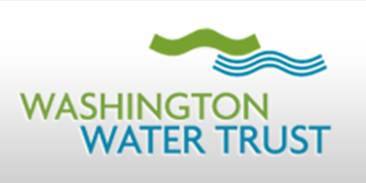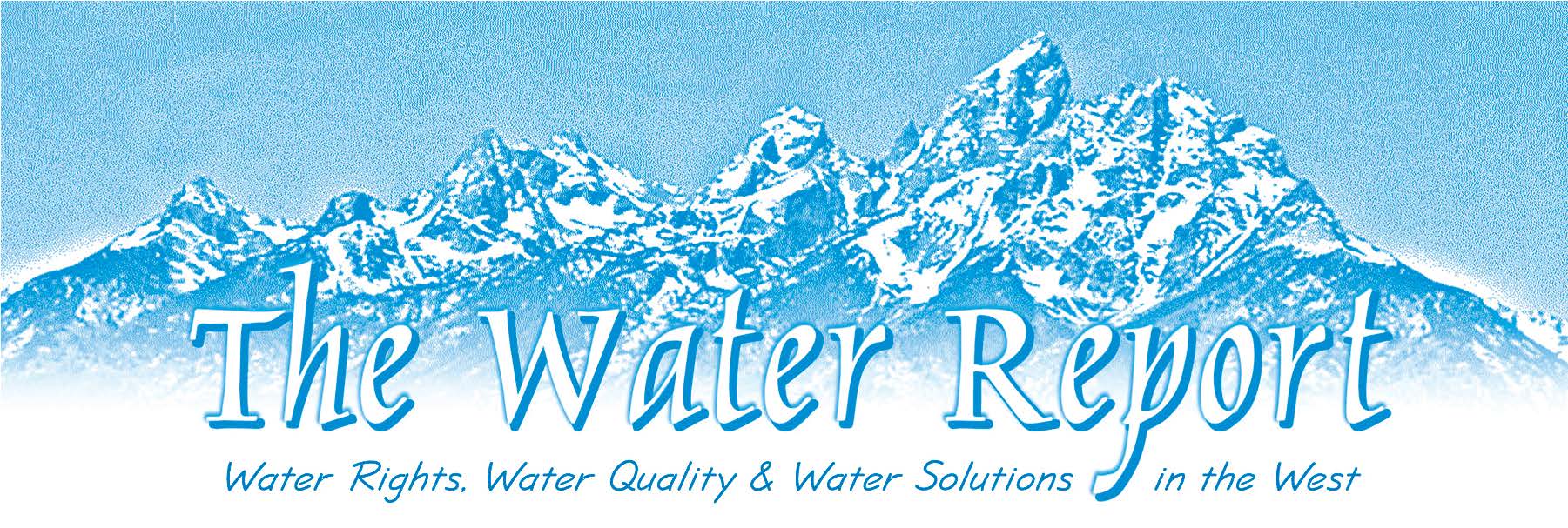April to August 2023 Edition AWRA-WA Annual State Conference 2023 Update Title: "The Four Corners of Washington – Water Resource Changes and Adaptations" When: Thursday, September 28th, 2023 Where: Mountaineers Seattle Program Center 7700 Sand Point Way NE, Seattle WA Our first in-person conference in three years will bring focus on water resource issues in all quadrants of Washington State. Problems such as climate change, water supply, adjudications, and salmon recovery all manifest differently in our temperate, semi-arid, and coastal regions. We hope you will join us for a day to gather together and hear from experienced, knowledgeable individuals who are working on innovative solutions to water resource issues throughout Washington state. Register for the conference here! Photos clockwise from upper left: Yakima Canyon, Central WA; Glacier Peak from Bonanza Peak, Northwest WA; Blue Glacier – Mount Olympus (1980), Southwest WA. Palouse Grasslands, Eastern WA, AGENDA 7:00am - 8:00am: Registration and Networking 8:00am - 8:10am: Welcome by Conference Co-Chairs 8:10am - 9:00am: Keynote Address
9:00am - 9:50am: Northwest Session
9:55am -10:15am: Networking Break and Morning Snack 10:15am - 11:05am: Southwest Session
11:05am - 11:20am: State of the AWRA-WA Section and Outstanding Service Award
11:20am - 11:35am: Before Lunch Speaker
11:35am - 12:25pm: Lunch 12:25pm - 1:30pm: Walla Walla Basin Session
1:30pm - 1:50pm: Networking Break and Snack 1:50pm -2:40pm: Eastern Session
2:40pm - 3:45pm: Yakima Basin Session
3:45pm - 4:05pm: Networking Break and Snack 4:05pm - 5:10pm: Issues of Statewide Significance
5:00pm - 7:00pm: Closing Remarks and Networking Reception SESSION OVERVIEWS Session 1: Northwest Session. The Northwest session of the conference will focus on the WRIA 1 adjudication. The WRIA 1 adjudication is a general stream adjudication in the Nooksack River system and area of Whatcom County north to Canada. Ecology’s records indicate that nearly 5,000 surface and ground water right documents are on file for WRIA 1, some dating back 100 years. And each of those water rights and the individuals that hold those water rights will be a part of the WRIA 1 adjudication. In this session, we bring you different perspectives on the adjudication including the benefits, detriments, and goals. Robin McPherson, the Adjudication Manager at the Department of Ecology, will kick off the session with a brief overview of water rights and an explanation of Washington’s priority based water right system. She will also discuss the reasons for the WRIA 1 adjudication and provide updates on filings, preparation, and deadlines. Jon Sitkin, principal attorney at CDS Attorneys at Law in Bellingham, Washington, will provide information on recent legislative changes to the adjudication process, the benefits and detriments to adjudication, and opportunities and barriers to settlement during the adjudication process. Lastly, Monte Mills, Professor at the University of Washington School of Law and Director of the Native American Law Center will present on federally reserved water rights, state versus federal court adjudications, and the McCarran Amendment. Session 2: Southwest Session. The Southwest session of the conference will discuss water supply and water resources for the region and will focus on the Dungeness River Basin. This basin sits in the shadow of the Olympic Mountains. As a result it receives less rainfall than all of its neighboring basins and is heavily dependent on snowmelt, which has been diminishing for decades. Mike Gallagher, Department of Ecology’s Water Resources Program Section Manager, will open the session and provide an overview of the southwest region’s water availability and water rights. Our next speaker is Hansi Hals, Director of Natural Resources for the Jamestown S'Klallam Tribe. People in the Dungeness Basin care about the river and jointly are trying to make decisions that will both protect the natural habitat and fish resources as well as support the watershed’s forestry, agriculture, residential and commercial development. This talk will provide a brief overview from a tribal resource management perspective, including treaty rights and current joint management efforts. Our final speaker of the session will be Hannah McDonough. Hannah is a Project Manager with Washington Water Trust and will present on the Dungeness Water Exchange mitigation bank, flow restoration transactions including emergency drought response, and long-term streamflow restoration actions for the Dungeness River, like the Off-Channel Reservoir. Before lunch speaker. Corinne Sams, elected Board of Trustees Member for the Confederated Tribes of the Umatilla Indian Reservation and Chair of the Columbia River Intertribal Fish Commission, will provide a prospective on the goals for the future of the Columbia River and the work that has been done to meet those goals. Session 3: Southeastern Session. The Walla Walla Basin is predicted to face one of biggest snow pack declines in the Pacific Northwest, and according to Ecology the Basin has been over appropriated for more than 100 years. This means the demand for water is higher than the water supply. For these and other reasons, the Walla Walla River has been running drying in the summer months, affecting both fish and water users. The Walla Walla Basin faces uncertainty and difficulty in managing its water supply as climate change continues to impact the Basin. The first four speakers, Tom Tebb, Chris Kowitz, Brook Beeler, and Anton Chiono, represent the Tri-Sovereigns of the Walla Walla Basin and will speak jointly about the Walla Walla Basin Strategy - including history and context in the Walla Walla Basin and current watershed and water planning efforts. Sarah Dymecki will discuss Washington Water Trusts’ efforts to restore streamflow in the Walla Walla Basin. Session 4: Eastern Session. The Eastern session of the conference will showcase speakers from various organizations that have been involved in fish reintroduction, water management, and planning for the future of the water supply. The first speaker in the session will be Chris Fisher, Fisheries Biologist at the Confederated Tribes of the Colville Reservation. Chris’ presentation will focus on restoration of sockeye salmon in the Okanogan. Then, Stan Miller will discuss takeaways from his over thirty years of experience in water management in the Spokane area, including what worked, what did not work, and what remains to be done. Lastly, Mike Faupel, Executive Director from the Palouse Basin Aquifer Committee (PBAC), and Robin Nimmer, Senior Hydrogeologist with Alta Science and Engineering will provide a team discussion on the future of the water supply in the Palouse Basin. They will share how PBAC is investigating additional supply sources to support current and future growth given declining groundwater levels. Session 5: Yakima Basin Session. The Yakima Basin covers over 6,000 square miles and is home to over 370,000 residents including 11,000 members of the Yakama Nation. The region is one of the top agriculture producing regions of the state. The Yakima Basin Integrated Plan (“YBIP”) brings together a coalition of diverse perspectives on water management including local, tribal, state, and federal organizations all working together to find solutions and stabilize water supplies in the Yakima Basin for generations to come. The Yakima Basin Panel is composed of individuals from various groups: Richard Visser - US Bureau of Reclamation; Tom Tebb - Department of Ecology; Danielle Squeochs -Yakama Nation; Steve Malloch - Western Water Futures; and Walt Larrick - Yakima Basin Irrigation Districts. The panel members will present on the state of the YBIP, the current challenges, and solutions. Session 6: Issues of Statewide Significance. Although Washington has a diverse climate, geology, and water challenges, there are some challenges we all face. Unlike the other sessions today, this session will focus on those issues that affect us all, no matter where we live, work, or play in Washington State. Crystal Raymond from the Climate Impacts Group at the University of Washington will start the session with a presentation on climate impacts on the availability of water, what the future entails, and whether there are approaches to managing climate change and water supply. Ria Berns with the Department of Ecology will then provide an update on the water resource program at Ecology, what the program has been working on, what is new this year, and what is coming up. Next John Devaney will discuss the state of agriculture in Washington State. Our last speaker of the day will be Alan Reichman, attorney with the Washington State Attorney General’s office, who will provide a presentation on municipal water law in Washington state. P.S. Register here for the conference if you haven't already! |



